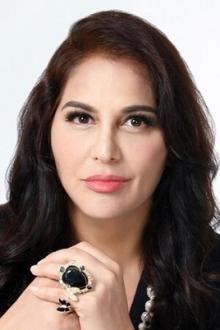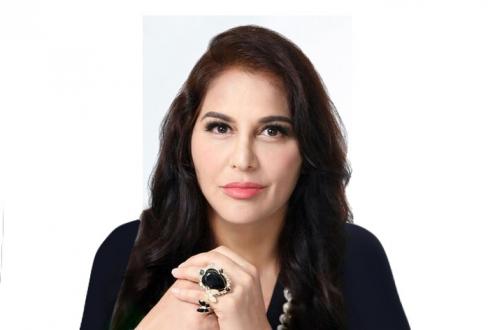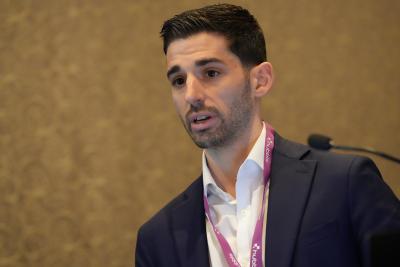Challenges & Solutions in Running a Family Office – Views from an Expert

Roxanne Davies of Proprietary Capital Holdings
Apr 20, 2023
When you establish and then operate a family office, what are the key elements to consider? How important is governance to a successful family office? What is the right structure, what do you handle in-house and what could you, or should you outsource to external specialists and partners? These were some of the key questions addressed by experts at the first panel discussion of the remarkably successful one-day Hubbis Family Office Forum in Singapore on February 9. The event was presented in exclusive partnership with US headquartered family office advisor and solutions provider Eton Solutions and timed alongside the launch of their Singapore international HQ for Europe, the Middle East and APAC. The Forum was sub-titled ‘Creating & Operating a Modern, Efficient and Fit-for-Purpose Family Office’ and brought together speakers and attendees from Single-Family Offices, Multi-Family Offices, private banks, independent wealth firms, trustees, lawyers, accountants, consultants, immigration specialists, regulators and other experts from the wider family office and wealth management ecosystem. This first panel discussion of the day saw a remarkable array of expertise assemble, including Roxanne Davies, Partner at Proprietary Capital Holdings. With her long experience of helping to run family offices in various jurisdictions, Roxanne added her valuable insights to the issues, challenges and solutions involved in setting up and operating a family office in Singapore, or indeed further afield. Hubbis has summarised some of those observations in this short review.
Moderator: Roxanne, you have considerable experience in leading family offices in various jurisdictions. Can you offer us some of the lessons you have learned along the way?
Roxanne Davies: The main lessons have been to understand what the family's real risk understanding and appetite is - keep things as simple as possible. I like to look at how risk variables change over time. Expected returns and risks are more often than not misunderstood and thus unachievable. This causes significant friction.
I have helped create and operate family offices in Europe and in Asia. Actually, my particular area of expertise is really on the investment side of the family office, where I concentrate most of my time and energy.
The end goal of all family offices is to preserve and grow wealth over generations and my job is to manage risk predominantly - both across the portfolio and for investments made in specific geographies and industries.
How investments and risk management are executed and reported is particular to each family's needs - frequency and complexity depends on levels of control they are after. However, governance is a very key success factor in achieving their longer-term goals.
For example, that might involve meeting the family members on a weekly basis, or perhaps a bit less frequently to discuss activities within those periods, including of course updating everyone on the investment portfolio, but also these meetings can cover legal or regulatory developments and how those might affect the family and the family office. That all ties into data and reporting, so that with, for example, aggregation modules, the family can be continually updated on what they hold, where, the associated risks and potential, and so forth.
Moderator: In your experience with these families, what do they actually like to see in terms of investment reporting and family governance more generally?
Roxanne: The answer is different across each family office. Some families really want their family members to integrate with the family office team, and be involved in weekly or monthly meetings, and some will have one person like the CEO or the CIO dealing with the family members and the family members do not have a relationship with the rest of the investment staff or other members.
It also depends on their approach to risk and how they like to invest. If the portfolio has more trading and more high octane risk positions, they might want more regular updates, even daily.
Some portfolios will have more direct investments, where change takes place slower but where there could be operational and technical issues to discuss, staffing issues and so on. Or there are portfolios more inclined to hedge funds and private assets, which are less liquid and where there is less regular and even less genuinely accurate valuation information.
Moderator: Is there a difference amongst the generations in their approach to these governance structures and transparency? And what about the role of ESG in investments, and potentially philanthropy?
Roxanne Davies: In my opinion, the founder generation or wealth creator tends to have attributes and archetypes that are similar across the world; they like a high level of control, they are actually very easy to work with, because they know what they want, and they tell you clearly. Their next gen is usually very focused on ESG considerations, as the world recognises the importance of sustainability of the planet and society.
Philanthropy is a very longstanding tradition for larger and the wealthier families. They might integrate that within their family office or they might act on those ideas through separate entities such as their trusts or foundations. I would say that foundations and philanthropy have become less of an accessory and more central to these larger families’ thinking and activities.
“As a general comment, I would observe that the more these families communicate well and consistently amongst the different generations the more likely they are to preserve wealth over the generations. If there is not really a common thread and common unity in spirit in the family, if the children are not brought up with that in their mindset, then there will be less unity and less cohesiveness.”
To hold all these family members and businesses and investments together requires dialogue, the right structures, and the right practices.
Moderator: Can you talk a little bit about creating and managing the right team of people in a family office, building and retaining the talent pool, and also delivering them the right technology to achieve an efficient and successful family office?
Roxanne: Teams should reflect the underlying strategy and risk management requirements of the family office. That is generally what I look for when building teams.New family offices usually select one trusted person - an ex- banker / CFO of the family's operational business or lawyer as their point person.
Technology required really depends on the complexity of the underlying portfolio and the complexity of your structures. If you have a very complex structure across jurisdictions, each one of those jurisdictions must have its own reporting requirements, whether it is to the government, or to the family on investments and other matters, and everything as I mentioned should be aggregated. The governance should require that there is a certain frequency of reporting, and the scale and complexity will drive the necessary spending on technology, which is vital to a smooth and efficient operation.
In terms of hiring and retaining people, in my experience – and I have worked with wealthy families for many years - family offices after a decade or two tend to want to change their leadership and their teams to keep up with the times and trends. Why? Family members change and evolve, new generations become involved, and they want to achieve an individual journey, they want some considerable degree of control and they want to ensure their investment objectives, tax mitigation missions, sustainability goals, philanthropic aims, and so forth.
Having said that, I advise family offices to build a really strong mixture of internal skills and external experts and partners to maximise resources and efficiency and spread the technical and operational expertise.
A Short note on Roxanne Davies
Roxanne is today based in Singapore. She is an accomplished investment professional with many years of experience running family offices and UHNW departments within private banks and asset management firms.
For example, she has held prominent roles such as Head of Private Equity and Head of High Net Worth Clients in banks such as HSBC and Union Bancaire Privee, and has developed great expertise in investing globally in all asset classes, with a particular focus on direct investing and alternative asset classes.
She is Swiss, although she was born in Manhattan. She holds a Master’s in finance as well as a Master’s in Business Administration.
Roxanne has also originated, managed, operated, and exited several successful direct equity investments, both controlling and minority positions, while she has also held both public and private company board membership positions across various industries and countries, and maintains several advisory board roles today.
More from Roxanne Davies, Proprietary Capital Holdings
Latest Articles






